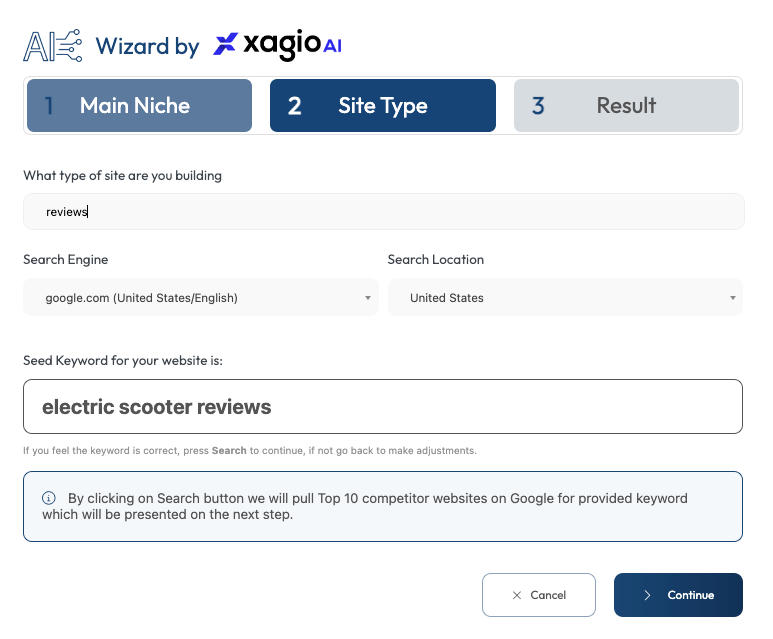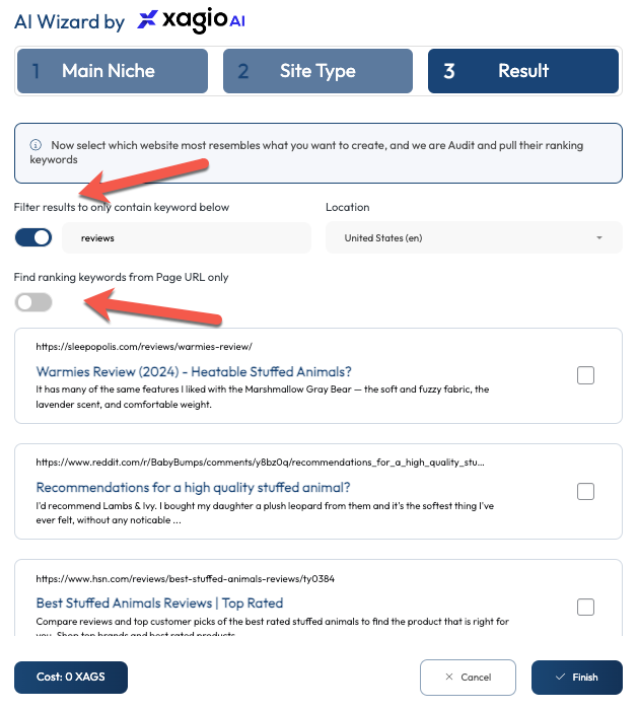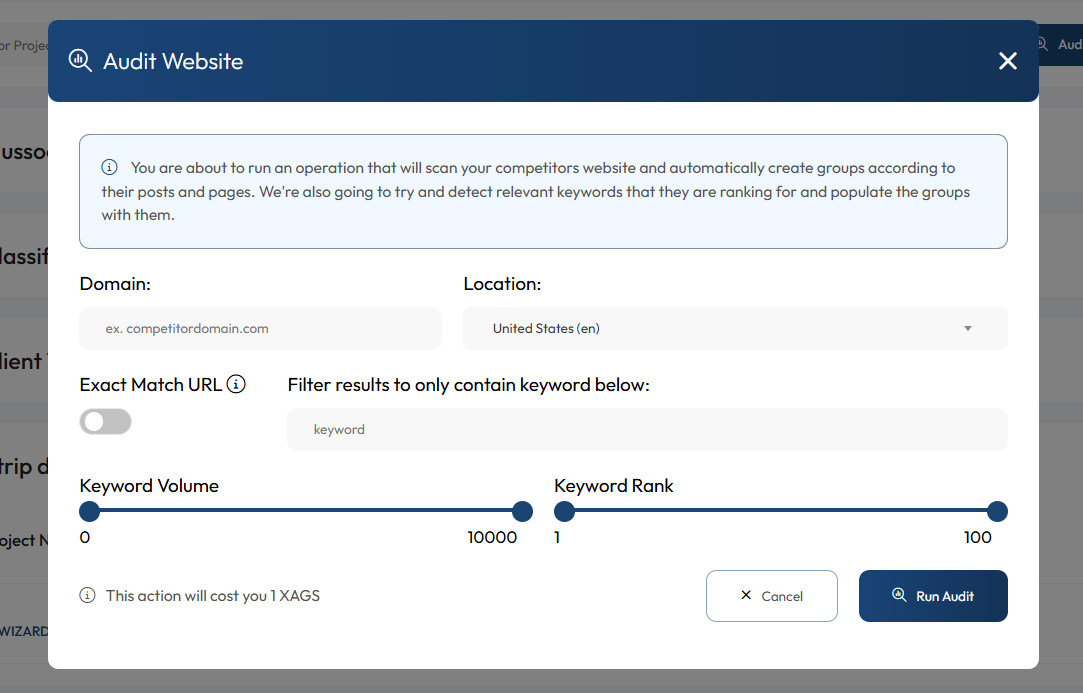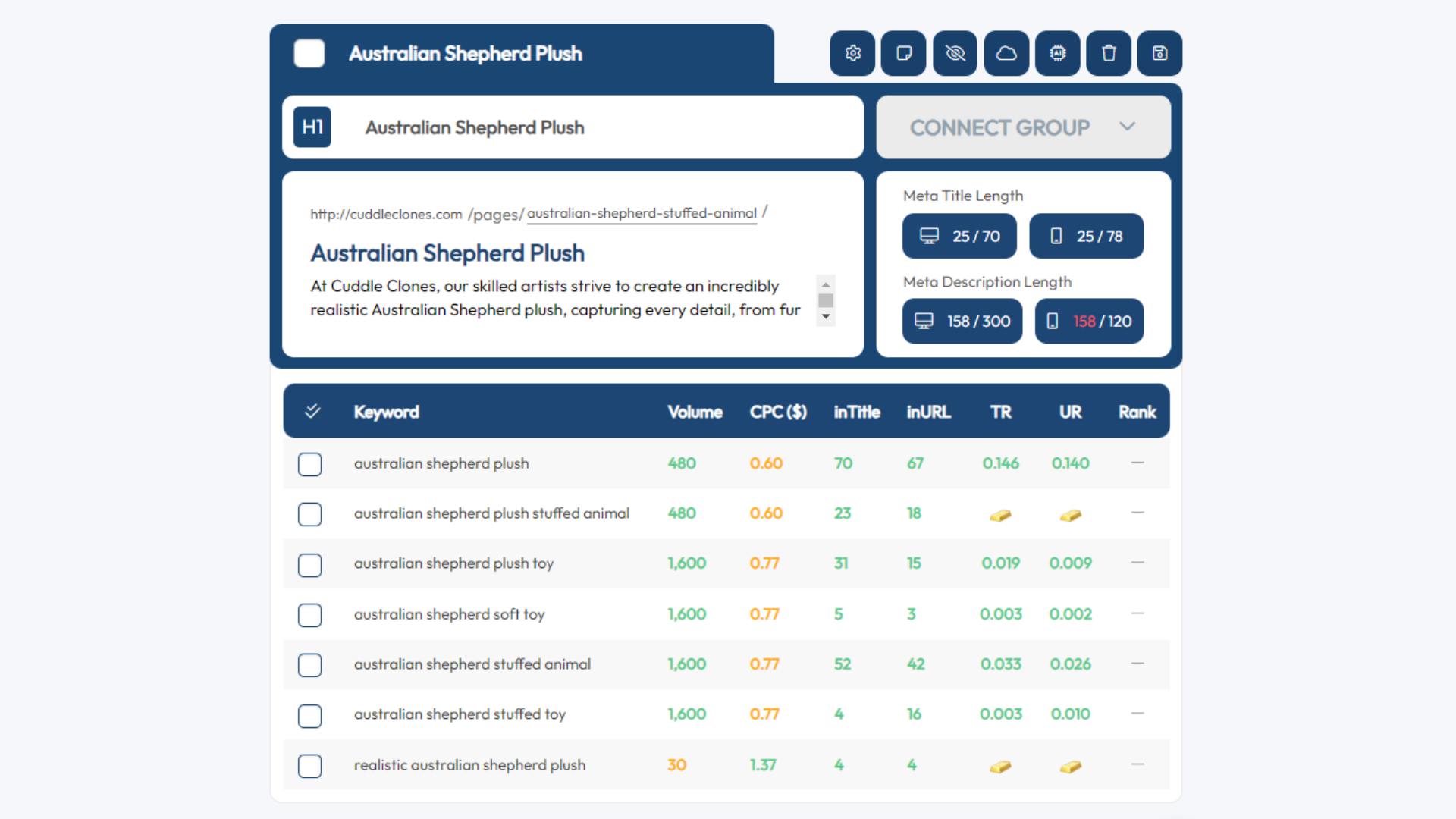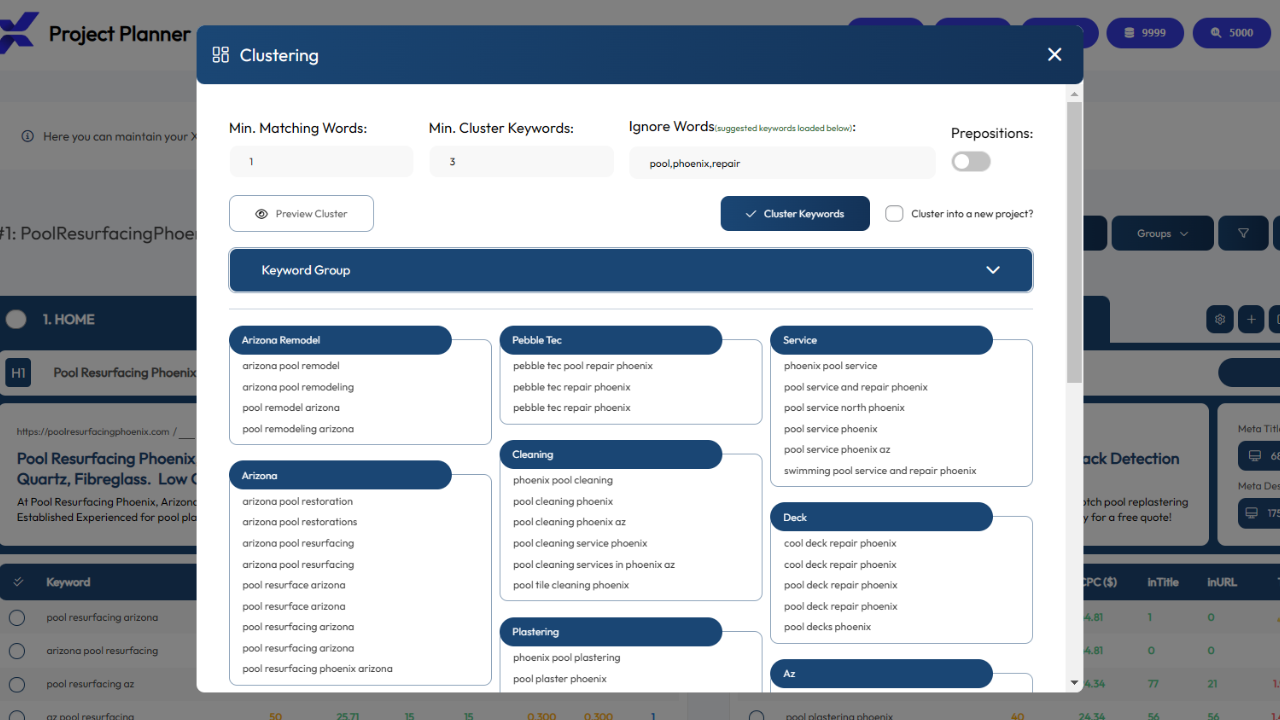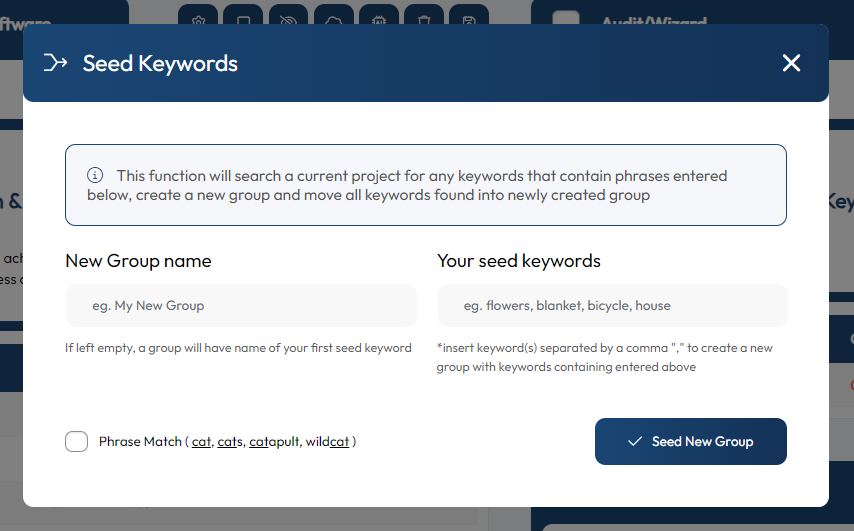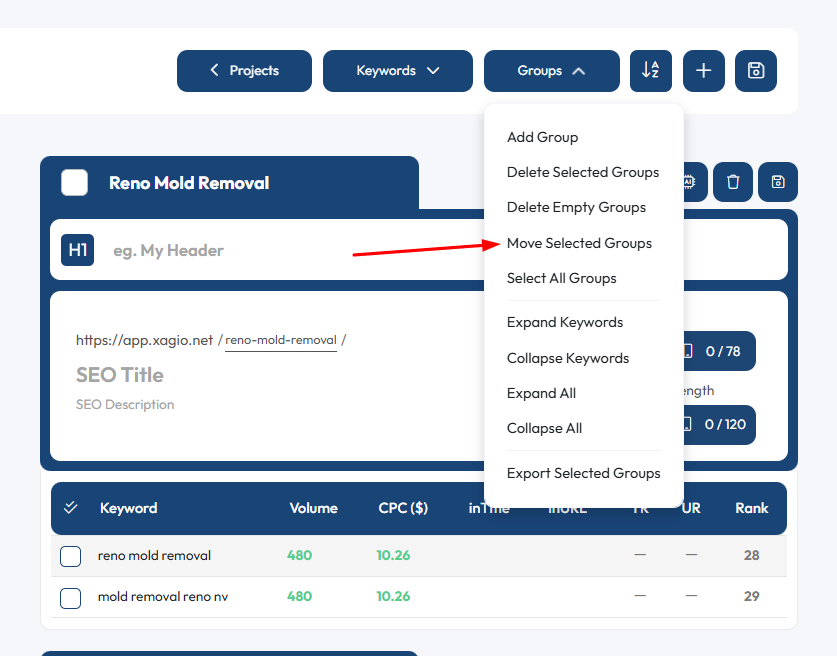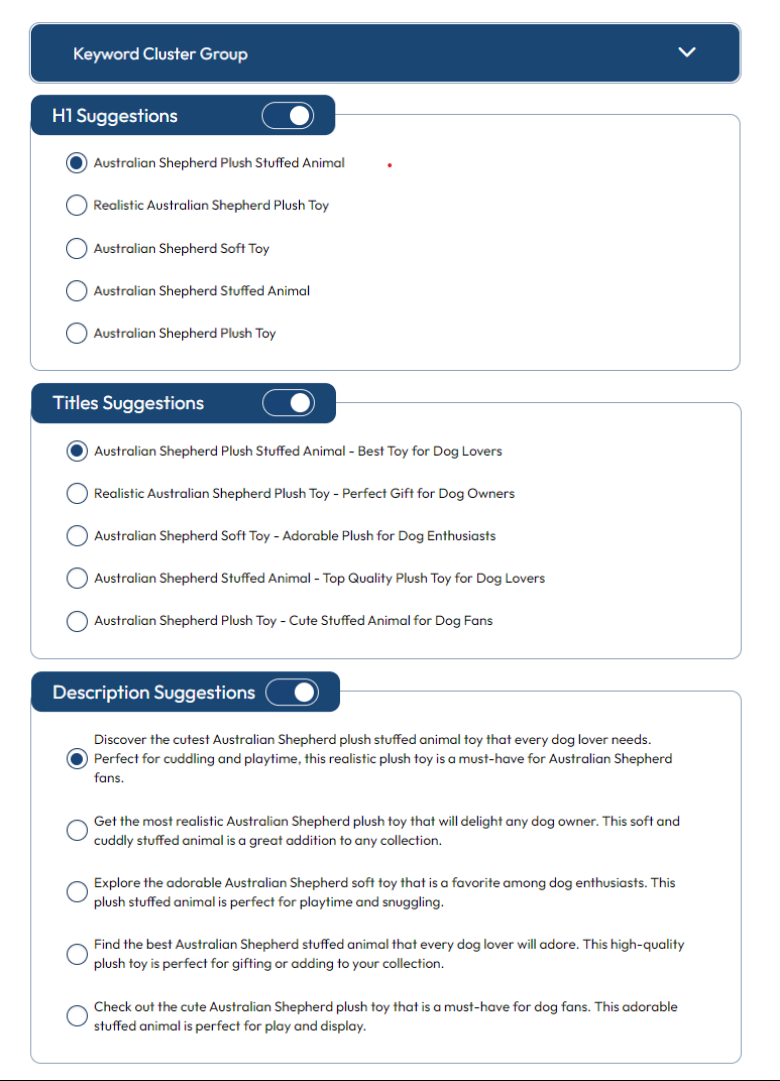Reverse-engineering your competitor’s websites to find relevant keywords is one of the most important, but also time-consuming, tasks of every SEO strategy.
The majority of SEOs that I have worked with spend endless days and weeks on competitor keyword analysis, or they build teams of VAs to handle this mind-numbing process.
Because I heard so many people complain about this inefficiency, I gave my development team the challenge to come up with solutions that would automate the gathering of competitors’ keyword data as well as automate the analysis phase.
The end result is a tool that no SEO should have to live without.
How Do You Check Competitor Keywords?
One way to check competitor keywords is to use SEO tools like Ahrefs and SEMRush. These cloud applications crawl the Internet in a similar way to Google and then develop a large database of keywords and ranking data.
While it’s easy to create large lists of keywords using these tools, this is only the first step in competitor keyword research.
Without sorting and analyzing the data, you won’t gain tangible information and knowledge that you can use for your SEO strategy.
And that’s exactly where Xagio fills a vital gap.
Xagio Wizard
If you’re not 100% certain what your best target keyword is, then Xagio’s Wizard will be one of the easiest ways to make this an educated and data-driven decision.
Head to the Project Planner tab of the Xagio Extension and click on the AI Wizard button at the top right.
Tell the wizard whether you’re working on a local business or global/affiliate site, and enter your niche details.
Xagio’s proprietary AI technology then crawls the search engine results pages for the highest-ranking competitors, allowing you to choose which to focus on.
You can choose one or more of the competitor websites for Xagio to use in its KW research.
Keep in mind, that the more websites you select in this step, the more XAGS you’ll be charged. You can learn more about topping up your XAGS and how to use them in our introduction post.
You can also decide whether to filter the results for specific keywords and whether Xagio should only analyze the ranking URL or the entire site.
The more you refine your selection, the more targeted the results will be.
Within seconds, Xagio will gather dozens of targeted organic keywords. In addition, the Wizard will cluster your competitors’ keywords into groups based on the existing pages and de-duplicate the list.
This alone saves you hours of manual analysis work.
Xagio Audit
Once you have identified your most important keyword(s) to target, it’s time to use Xagio’s most powerful tool. Launch the Audit tool from the Project Planner and enter your main competitor’s URL.
You can also enter a specific webpage of your competitor to have a highly targeted list of keywords for one particular topic.
Here’s the best part.
Once you hit that “Run Audit” button, you’ll get the search results in less than 10 seconds. Not only that but all the keywords will be clustered into keyword groups based on how your competitors set up their pages.
Each group represents a page and topic with the most important and relevant keywords your competitors rank for.
But it gets better.
At the click of a button, you can then get Xagio to pull the search volume, CPC, and competition data for all or particular keywords. Xagio even highlights the best keywords to target based on a combination of high volume and low competition.
What would normally take you days and even weeks to complete happens in seconds using Xagio.
You should repeat this step for at least the top five organic competitors to gain the broadest possible list of competitor keywords.
Note, that premium features like Audits and Wizards require XAGS in your account. You can learn more about XAGS here, including how to top up your account.
Keyword Clustering
While Xagio’s Audit feature clusters all the keywords into groups based on the competitors’ pages, it also offers the flexibility to apply different clustering rules.
See, the goal of competitor keyword research isn’t just to copy exactly what others are doing.
Your goal should be to learn from competitors and then improve their strategy to outrank them. The only way you can do this is to find ways to better target those keywords on your own site.
To do this, Xagio offers two automation tools.
The first one is Cluster Keywords, which allows you to set variables for the number of words and keywords to use for clustering. Simply click on the Keywords button and then select Cluster Keywords.
By increasing and decreasing the values for “Min. Matching Words” and “Min. Cluster Keywords” and then previewing the results, you’ll gain some great insights into particular keyword opportunities.
The second option is the Seed keywords feature. This tool allows you to set a specific word or keyword that you want to use for a group. Xagio then pulls all the keywords with that word into one group.
All this happens in seconds and requires no manual filtering, searching, copying, pasting, or endless frustration and headaches.
Using Competitor Keywords To Drive Your SEO Strategy
All your competitor analysis can be completed in just a few minutes compared to weeks worth of work using manual processes.
Keyword Research For An Existing Website
Many keyword research tools offer features like content gap analysis. These are very helpful for comparing the keywords your site ranks for versus your competitor sites.
But that’s very limited information that doesn’t allow you to make fully educated decisions.
With Xagio, you can add one extra Audit to the above competitor ones. With an updated audit of your own website, you can then combine multiple Audits into one master project.
Once you run Xagio’s automated de-duplicate tool, you’ll end up with keyword groups that identify your existing pages as well as pages your competitors already rank for in search results.
It’s a fast and powerful tool to find keywords you can use for new content, knowing that they will bring in more organic search traffic.
Keyword Research For A New Website
For a brand-new website, the process of creating a master list of competitor keywords to target is a bit easier.
Once you complete Audits for your top five competitors, plus a few highly relevant pages, you’ll be able to combine all those audits into a single project.
Simply select all the keyword groups in one Audit, then use the Move function to bring them into another Audit project. After repeating this for all your Audits, you simply need to run the de-duplicator tool, and you have one huge list of keyword groups for your new website.
Content Cannibalization Analysis
Before you mark your competitor keyword analysis task as done, there is one more step I recommend that you do with your master list of competitors’ keywords.
Each of the groups will list the keywords and the competitors’ last known rankings, which can provide some incredibly powerful information.
If you see a page listed with very high search engine rankings as well as very low ones, then it’s likely that there are some cannibalization issues in play.
This happens when Google thinks that more than one page targets the exact same keywords and, as a result, doesn’t rank any of the pages high up in the SERPs.
If you spot this in your Audits, then it’s a great indication for you to split that group and create two pages, thereby avoiding such cannibalization on your own site.
Onsite Optimization
The final thing you can use your competitors’ keywords for is making onsite optimizations.
Whether you have an established site or a brand-new one, making sure that your URL slug, Title, H1, and Meta Description tags are optimized for the best keywords will have a huge impact on your organic traffic.
Normally, that means choosing the keyword with the best balance of high volume and low competition for every single page and then manually updating them.
But Xagio has another superpower.
In your main Project Planner Audit, where you combine all your competitive keyword research, you can use AI technology to optimize your Title, H1, and Meta Description tags.
Either let Xagio pick the best keyword or choose one yourself, then review the auto-generated suggestions a few seconds later.
What usually takes 15 minutes per page and a lot of creative skills will be done in less than 10 seconds. Multiply that by all the pages on your site, and you can have your onsite optimization done in minutes rather than days.
Easy Competitor Keyword Research With Xagio
Unlike every other keyword research tool available, Xagio will save you many weeks’ worth of time, effort, and headaches.
It’s the fastest tool available for analyzing and sorting keywords, and it involves hardly any manual steps. Whether you spend your own time on keyword research or have VAs for this task, Xagio is one tool that will deliver maximum efficiency gains.
I’m so confident that you’ll love the way Xagio works that I even offer a 100% money-back guarantee.
Get started with Xagio today and experience what it’s like to find all the keywords your competitors are using in less time than it’ll take you to get a cup of coffee.
